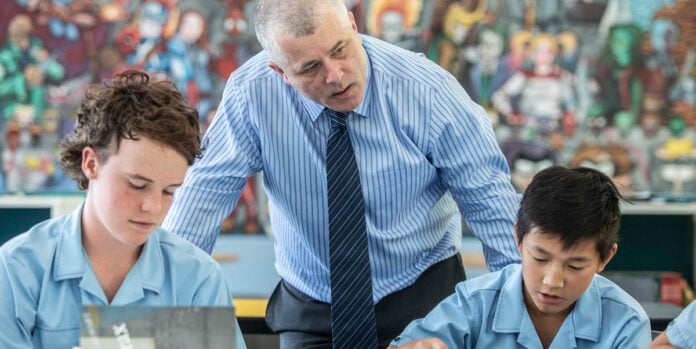To see a World in a Grain of Sand
And a Heaven in a Wild Flower
Hold Infinity in the palm of your hand
And Eternity in an hour
It’s something of a cliché to quote these famous lines from Auguries of Innocence, but if I had to sum up writing in fewer than thirty words, I would use this opening stanza of William Blake’ remarkable poem.
Blake suggests that seemingly small acts can be highly significant, and that beauty can be found in the unlikeliest of places. People can be touched by all manner of things, and despite all the bells and whistles of modern technology, a well-crafted sentence remains one of the world’s most powerful creations.
How does this relate to the education of young men at Melbourne Grammar School? Boys can be messy, chaotic creatures, but they are capable of uncanny insight when given half the chance. They can see with great clarity, but sometimes, they lack the breadth of vocabulary and precision of language to allow their ideas to take flight. This is the honour and plight of the English teacher – to develop the writing skills of students, to transmogrify their run-on sentences and occasionally clumsy phrasing into paragons of literacy.
It’s a wonderful thing when a student realises the power of words. A linguistically-athletic student is more able to convey shades of meaning in their discourse. They become adept in finding sub-text, irony and meaning in their encounters. A young man with command over the mother tongue is more sensitive to the ley lines of meaning in the world around him, and such individuals often become imbued with a confidence that does not fade over time. But in order for that to happen, the student must pick up the pen. Fortunately, most of them do.
The joy of writing is an easy thing to understand. Writers are makers, god-like in their ability to raise cities and civilisations. It doesn’t take much for boys to derive pleasure from the act of crafting a tale, and in many ways, their ideation is not dissimilar from the acts of construction taking place in the world’s top-selling videogame Minecraft. The desire to build is hard-wired into our DNA. Melbourne Grammar School students are encouraged to develop knowledge of language’s raw materials (words, phrases and clauses) and expertise with the available tools (grammatical rules and conventions).
In taking arms against a sea of troubles, William Shakespeare mixed his metaphors. Allow me then to move figuratively from construction to art. It’s not enough for a student to have the metaphorical 120 pack of Derwent pencils. Colours must be placed in a careful arrangement that allows shapes and hues to take on meaning. More isn’t always more. Judicious selection, meticulous planning and a preparedness to iterate are all vitally important to the process of being an effective communicator. Words aren’t important unless they are placed on a line in a respectable order. It takes time, and sometimes failure, but our students get there in the end.
One of the delights of teaching is that we are privy to our students’ inexorable movement towards mastery of the English language. We see them experiment with words in a vast array of forms: stories, biographies, poems, essays, journals, articles, reports – the list is boundless. We bear witness to writers abandoning stories glued together by the phrase ‘and then’, eventually finding ways not only to structure and coordinate a compelling narrative, but also to shine a light on the human condition. Writing allows us all to hold infinity in our hands; with around 2,000 students in the school, that’s a lot of infinity.
Paul Stewart
Coordinator of English at Wadhurst



